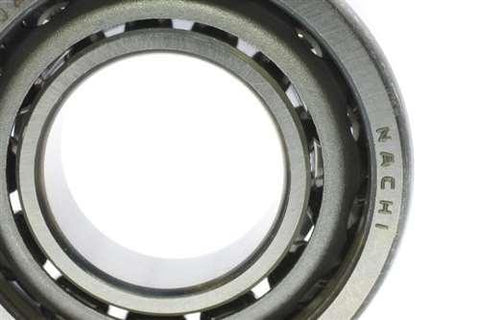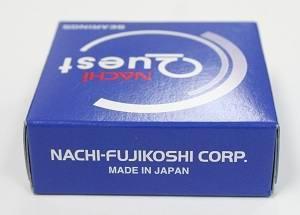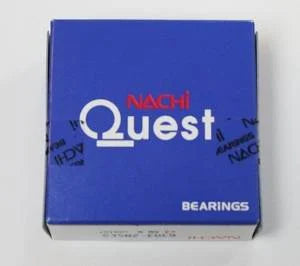


Nachi
7310 Nachi Angular Contact Bearing C3 Japan 50x110x27 Bearings
UPC: 00193019085431
Type: Nachi Angular Ball Bearing
Cage: Steel Cage
Dimensions: 50mm x 110mm x 27mm/Metric
ID (inner diameter)/Bore: 50mm
| 7310 Nachi Angular Ball Bearing 40 Contact Angle & Steel Cage 50mm x 110mm x 27mm Made in Japan |
|
|
7310 Nachi Angular Ball Bearing, bearing is 40 Contact Angle, Steel Cage and Flush Ground, Made in Japan, inner diameter is 50mm, outer diameter is 110mm and width is 27mm.
|
The raceways of both the inner and outer rings of this bearing type are made with a set contact angle. These bearings are non-separable. Since the balls are inserted utilizing counter-bore construction, a larger number of balls can be installed than in the case of Deep-groove ball bearings. Standard cage materials may be pressed steel, high-strength brass, or synthetic resin. Cage material is dependent on the bearing series and or service condition. Single-row Angular Contact ball bearings can sustain radial, axial or composite loads, however, any axial load must be in one direction. This bearing type is generally used in pairs to handle the induced load resulting from the internal axial force generated by the applied radial load. When mounting two single bearings in adjacent positions, NACHI provides these combination parts (pairs) with preadjusted clearance. Paired combination bearings are matched sets. Combination or paired bearings can be arranged BACK-TO-BACK (DB), FACE-TOFACE (DF), or in TANDEM (DT). DB or DF sets can sustain bidirectional axial loads.
